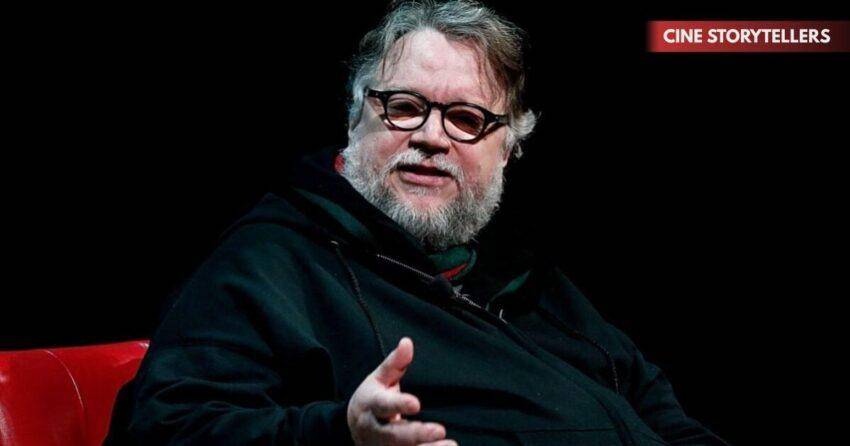Guillermo del Toro, the visionary director behind cinematic masterpieces like Pan’s Labyrinth and Crimson Peak, has taken a firm stance against generative AI in filmmaking. In a recent interview, del Toro compared AI developers’ unchecked ambition to Victor Frankenstein, insisting that technology cannot replace human creativity. His upcoming Netflix reimagining of Frankenstein showcases his dedication to practical effects and human-driven storytelling, igniting discussions about the future of creativity in cinema.
Renowned filmmaker Guillermo del Toro has made headlines for his uncompromising stance on generative AI in the film industry. In a recent interview, del Toro stated, “I’d rather die than use generative AI in my films,” highlighting his deep commitment to human-driven artistry
As AI becomes increasingly integrated into creative industries, del Toro’s position serves as a provocative and thought-provoking reminder of the value of authentic human expression.
Del Toro’s Philosophy: Human Creativity Over Technology
For del Toro, filmmaking is not merely a technical endeavor—it is a deeply human act. He argues that emotional depth, nuanced storytelling, and the imperfections of human performance cannot be replicated by artificial intelligence.
- Emotional Authenticity: AI may produce visuals or scripts, but it lacks the lived experiences that inform genuine artistic expression.
- Craftsmanship: Practical effects, set design, and hands-on direction reflect the unique touch of skilled creators.
- Narrative Depth: Stories shaped by human perspective resonate because they reflect authentic emotions, moral conflicts, and lived experiences.
Del Toro emphasizes that AI can assist with mundane tasks but should never replace the human hand at the core of storytelling.
The Frankenstein Analogy: A Cautionary Tale
Del Toro draws a compelling parallel between AI developers and Victor Frankenstein, the ambitious scientist from Mary Shelley’s Frankenstein.
- Unchecked Ambition: Just as Frankenstein’s obsession led to unintended consequences, del Toro warns that blind trust in AI could undermine creativity and ethical responsibility.
- Consequences of Creation: Technology developed without foresight may produce outcomes beyond our control, mirroring Frankenstein’s tragic narrative.
- Moral Responsibility: Del Toro underscores the importance of accountability in creative decision-making, whether in science or filmmaking.
This analogy highlights del Toro’s concern that AI could disrupt not only creative integrity but also the ethical boundaries of storytelling.
Upcoming Project: A Human-Centric Frankenstein
Del Toro is currently directing a Netflix reimagining of Frankenstein, set to release on November 7, 2025. The project reflects his commitment to practical effects, immersive set design, and human-driven performance.
- Practical Effects: By avoiding AI-generated visuals, del Toro ensures that every creature, set piece, and detail is crafted by human hands.
- Authenticity in Storytelling: The film focuses on emotional resonance and narrative depth, maintaining the essence of Shelley’s classic while infusing del Toro’s signature gothic aesthetic.
- Collaboration: Actors, designers, and technical crews are central to the creative process, reinforcing del Toro’s belief in collaborative artistry over automation.
This project exemplifies how del Toro merges technological tools only when they support—not replace—the human creative process.
Industry Impact: Sparking a Conversation
Del Toro’s outspoken stance has sparked a broader discussion about AI’s role in entertainment.
- Efficiency vs. Artistry: Some filmmakers embrace AI for editing, special effects, and script assistance, prioritizing speed and cost reduction.
- Creative Integrity: Del Toro’s position challenges the industry to consider whether efficiency should ever outweigh the unique value of human creativity.
- Ethical Considerations: Beyond artistry, AI raises questions about authorship, copyright, and moral responsibility—issues del Toro’s analogy with Frankenstein brings into focus.
His perspective encourages a reevaluation of AI in cinema, urging professionals to balance innovation with ethical and creative integrity.
Del Toro on AI’s Limits
Del Toro acknowledges that technology can enhance filmmaking but insists that its role must remain supportive:
- Assistance, Not Replacement: AI can handle repetitive or technical tasks but cannot substitute human insight or imagination.
- Preserving the Human Touch: Emotional nuances, improvisation, and moral depth are irreplaceable elements of storytelling.
- Risk of Homogenization: Relying heavily on AI risks creating formulaic content that lacks individuality and cultural richness.
Through these insights, del Toro positions himself as a guardian of artistic authenticity in a digital era.
Reactions from the Film Community
The industry has had varied responses to del Toro’s declaration:
- Supporters: Many directors and creators applaud his insistence on human-centric filmmaking, seeing it as a necessary counterbalance to the AI trend.
- Critics: Some argue that AI can enhance creativity, suggesting del Toro’s approach may limit innovation and experimentation.
- Fans: Cinema enthusiasts celebrate his commitment to storytelling rooted in emotion, craftsmanship, and practical artistry.
Del Toro’s position continues to inspire dialogue about the future of cinema in an AI-driven world.
Also Read : Katy Perry and Justin Trudeau Confirm Romance: Hand-in-Hand in Paris
FAQs
Q1: Why does Guillermo del Toro reject generative AI in filmmaking?
A1: Del Toro believes AI cannot replicate the emotional depth, narrative nuance, and craftsmanship that human creators bring to films.
Q2: How does del Toro compare AI developers to Victor Frankenstein?
A2: He draws a parallel between Frankenstein’s unchecked ambition and AI developers’ potential to create technology without considering consequences.
Q3: What is his upcoming project related to this stance?
A3: Del Toro is directing a Netflix reimagining of Frankenstein, emphasizing practical effects, human performance, and hands-on storytelling.
Q4: Can AI still be used in del Toro’s films?
A4: Yes, but only as a supportive tool for tasks like post-production or research—not as a replacement for human creativity.
Q5: How has the industry responded to del Toro’s views?
A5: Reactions are mixed, with supporters praising his commitment to artistry and critics suggesting AI could offer valuable creative opportunities.
Q6: Why is del Toro’s stance significant for filmmaking?
A6: It reinforces the importance of human-driven storytelling, ethical responsibility, and preserving the authenticity of cinema in an era dominated by technology.
Join our WhatsApp channel for more updates and information about celebrities and entertainment

I’m Atul Kumar, founder of Cine Storytellers and an entertainment creator with 5+ years of experience. I cover films, celebrities, music, and OTT content with a focus on accurate, ethical, and engaging storytelling. My goal is to bring readers trustworthy entertainment news that informs, inspires, and goes beyond gossip.
Discover more from Cine Storytellers
Subscribe to get the latest posts sent to your email.
